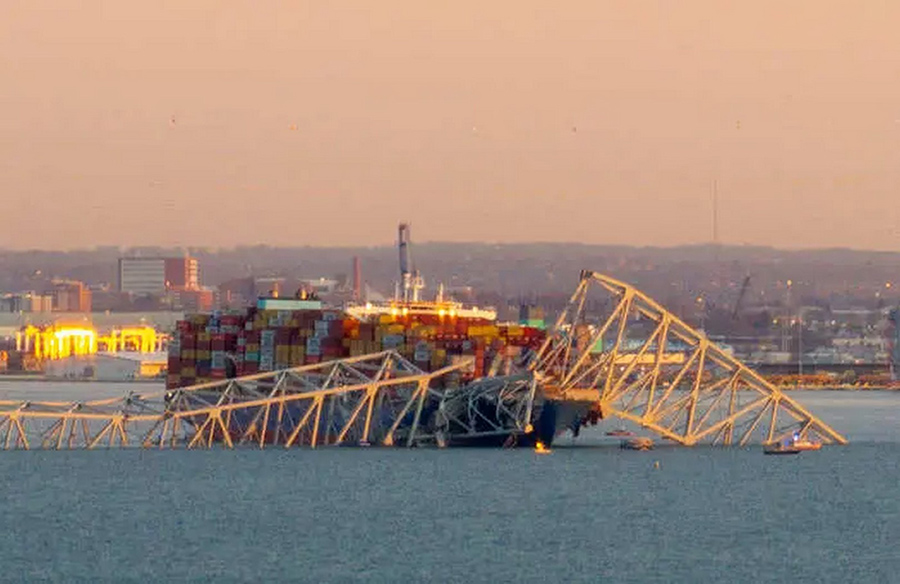In the aftermath of the collision between the Dali containership and Baltimore’s Francis Scott Key Bridge, the ship’s owner and manager are invoking an age-old law to limit their legal liabilities.
Seeking Limited Liability
Grace Ocean, the owner of the vessel, and Synergy Marine, its operations manager, are aiming to cap their liability at approximately $43.7 million. This figure corresponds to the post-incident value of the ship, as detailed in a court petition filed by the Singapore-based companies in Maryland. Prior to the collision with the bridge, the 95,000-metric ton Dali was valued at up to $90 million.
Impact on Ship’s Value
The collision’s aftermath includes significant impacts on the ship’s overall value. Cleanup efforts are estimated to cost at least $28 million, with an additional $19.5 million allocated for salvage operations. The freight onboard the vessel was valued at $1.2 million. The companies plan to submit updated cost estimates once the final figures for salvage and repair are determined.
Historical Precedent and Legal Strategy
The companies’ legal petition falls under a 19th-century federal law that limits owners’ liabilities to the post-incident value of the ship and the freight onboard. Notably, this law was effectively utilized by the owner of the Titanic following its sinking in 1912. Analysts anticipate significant insurance claims arising from the Baltimore bridge disaster, potentially amounting to billions of dollars in losses.
Challenges and Potential Outcomes
For the limitation to be granted, the companies must demonstrate that they were not at fault for the incident and had no prior knowledge of negligence or contributing factors. The official investigation into the collision will play a crucial role in determining the petition’s success. However, experts caution that while the limitation act is commonly invoked, its success rate is relatively low.
Long-Term Legal Process
The legal proceedings surrounding this case are expected to extend over several years due to the complexity of maritime law and insurance claims involved. While seeking limited liability offers potential cost savings for the companies, the outcome hinges on various legal and investigative factors, making the resolution of this case a protracted process.
